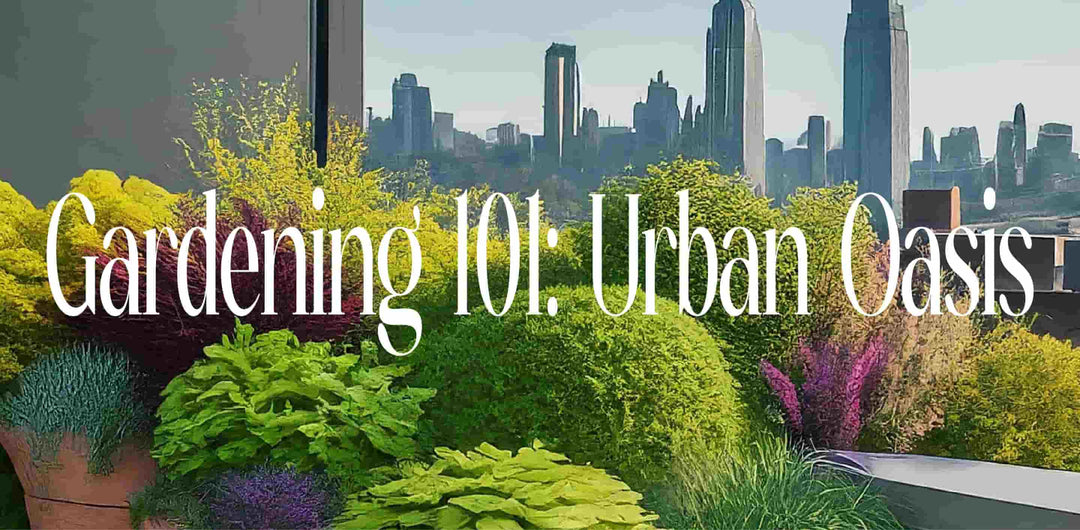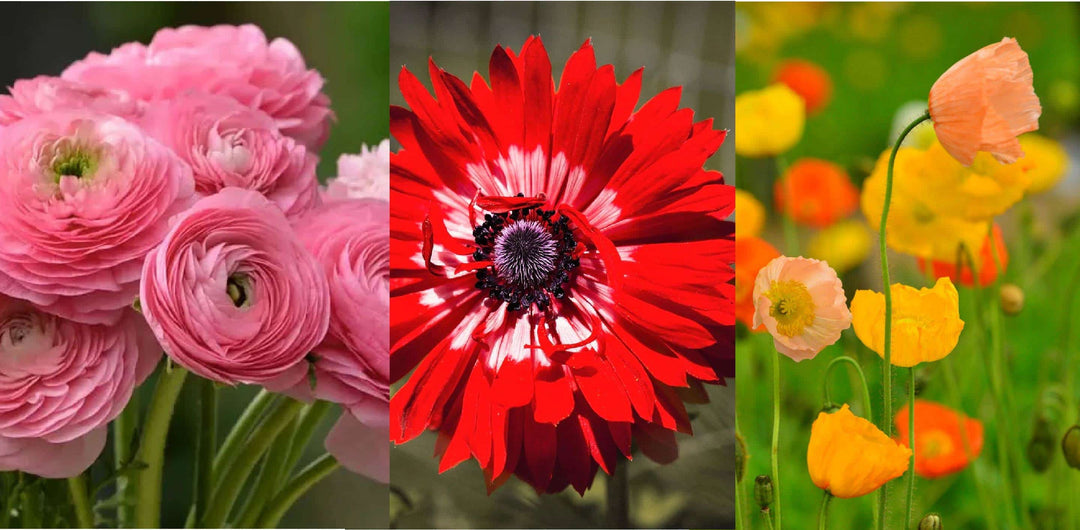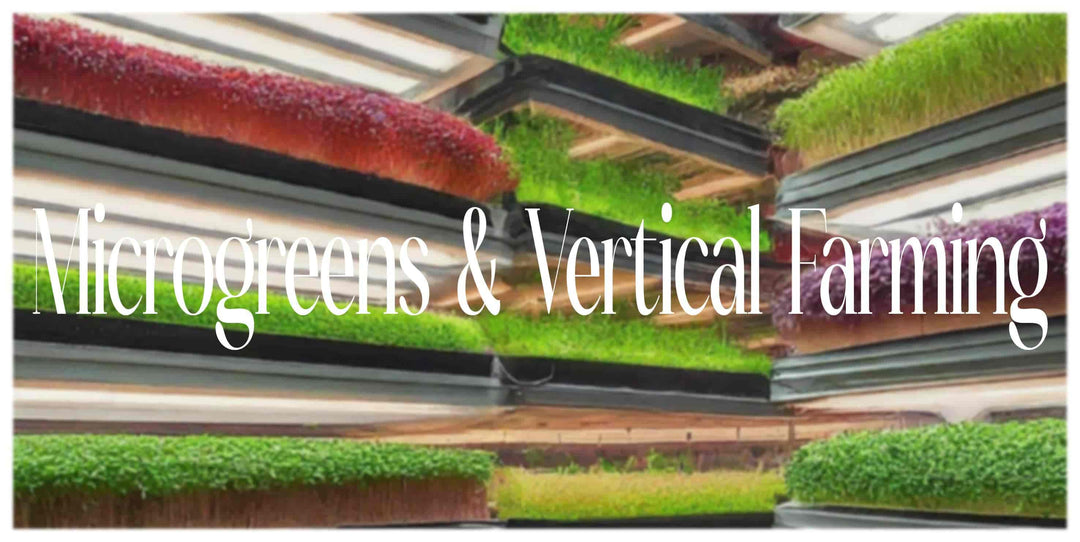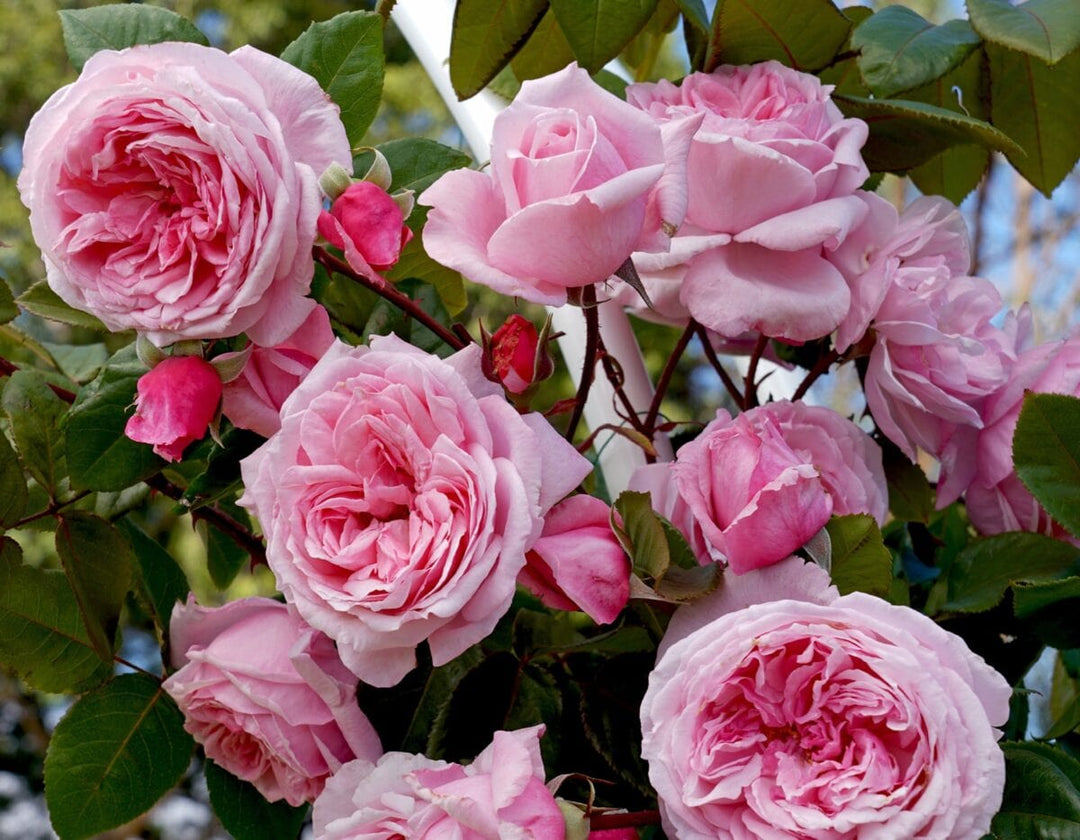Fertilizers 101
Whether you're new to gardening or you're a seasoned professional. Gardening is a world of its own, where we as gardeners get to learn and grow constantly. From being in the industry for over 40 years, we've learned a thing or two regarding gardening. We've come to understand that fertilizers are super important but not the easiest to understand. Don't worry; we're here to help make feeding your plants as easy as 1-2-3.
What is Fertilizer?

What happens when you give your plants the perfect amount of sunlight and water, but they're still not happy? You feed them nutrients! Plant fertilizer is the best way to provide plants with the nutrients they need to grow healthy and robust, especially after being removed from the ground and placed in a container. Even if they haven't been removed from the ground, the nutrients your soil provides to your plants are never guaranteed. Using Fertilizer is the best way to ensure your plants are getting a balanced diet to perform at their best.
Why use Fertilizer?

Improving your plants healthy with fertilizer leads to many benefits. Some of those benefits include:
- Increase pest tolerance
- Improved yielding
- Faster root development and growth
- Improved colour for leaves and blooms
- Stronger, more tolerant straws and stocks
- Improved water intake
- Added nutrients for limp container plants
How To Choose Fertilizer

When choosing your Fertilizer, it's essential to know what you're looking for. Each Fertilizer has its unique combination of nutrients that can be effective or dangerous to your plants. The Fertilizer you choose should be specific to the plants you're growing, as every plant has its own needs. When browsing through the fertilizer section, you'll notice there is a fertilizer for everything and more. Be sure to consider the following before making your decision.
Fast release vs. Slow release
When choosing the best Fertilizer for your plants, two important things to consider are to know whether you're looking for slow-release Fertilizer or fast-release Fertilizer.
Fast Release Fertilizer - A liquid fertilizer which provides nutrients to your plants quickly. Providing them with a couple of weeks of nutrients to help them thrive. Fast-release fertilizers are fantastic for annuals because they deliver the proper nutrients immediately, allowing your annuals to look their very best for the season. Fast release fertilizers are quickly absorbed and thus require re-feeding more often to keep your plants happy.
Slow-Release Fertilizer - A granular fertilizer which release a slow and steady amount of food to your plants to help them grow healthy and robust plants throughout all growing stages. Feeding your plants with a slow-release fertilizer will allow you to grow healthy roots over a more extended period, resulting in vigorous, healthy plants year after year!
What do the numbers mean?
When shopping for plant fertilizer, you'll notice a sequence of numbers. These numbers indicate the total value of nutrients that the plant fertilizer delivers. The first number indicates the percentage of Nitrogen. The second number indicates the percentage of Phosphorus. The third number is the percentage of Potassium. Here is why each of these nutrients is vital for optimal plant growth.
Nitrogen: Nitrogen is essential for plants to absorb sunlight, producing sugar from water and carbon dioxide. This number indicates the nutrients needed for healthy leaves and colour.
Phosphorus: Phosphorus is used by plants to store and transfer energy efficiently. This number indicates the nutrients needed to produce flowers, fruit and roots.
Potassium: Potassium is used by plants to move nutrients and water throughout the plants body. Delivering all the protein and nutrients where they're needed.
Example: of how these formulas are displayed would be " Bone Meal 2-13-0".
Types of Fertilizers
|
Fertilizer |
Nutrients |
Uses |
|
6-18-18 |
Important trace elements for large, abundant, beautiful blooms |
|
|
2-13-0 |
The elemental makeup translates into strong roots, and its gradual breakdown gives your plants plenty of time to tap into its potent (yet cool) nutrient reserves. |
|
|
7-21-18 |
Fruit & Berry Fertilizer contains the macro and micro nutrients needed by your fruit trees, small fruits, and vining fruits to produce solid and sustained growth, a high bloom count, and strong, well developed fruit. |
|
|
9-3-9 |
Specially formulated for all outdoor and indoor tropicals, including hardy palms, bananas, houseplants and more! Feeds continuously for 4-6 weeks. |
|
|
10-40-25 |
Mix Power Bloom in your watering can every 10-14 days and stand back! Your hanging baskets, planters, and even indoor flowering plants will look as though they have more flowers than foliage! |
|
|
6-12-8 |
This formula includes trace elements essential to root growth and allows for better flower colour and contrast. Use this formula on any acid-loving plants including Hydrangeas, Skimmia, Pieris, Viburnums, etc! |
|
|
12-16-12 |
Designed for powerful all purpose formula to reduce waste and provide an organic-based balanced diet for your garden edibles. |
|
|
20-20-20 |
Complete, fast-acting nutrition for vigorous growth on all types of plants. Use on potted plants (indoor and out), hanging baskets, and ornamental trees and shrubs. |
|
|
5-15-5 |
Not only is Transplanter effective at reducing transplant shock from seedling veggies and flowers to large shrubs and trees, it's also a great defense when you observe signs of stress on your existing plants. |
|
|
14-7-14 |
Professional quality evergreen, tree, and hedge fertilizer with 2% iron for quick greening. |
|
|
8-12-16 |
Organic based to help promote dark green foliage year round. |
|
|
14-14-14 |
Perfect for hanging baskets, indoor plants, and container gardening. |
Common Mistakes

As you can tell there are many options when it comes to choosing fertilizers. To help narrow down your choices, it's not only important to know what you're looking for but it's also important to know what to be careful of. When fertilizing, be sure to consider these common mistakes.
- If you are planning on consuming your plants (fruits, vegetables, herbs) be sure to go with an organic based fertilizer for healthy, chemical-free digestion.
- When choosing your fertilizer, try to stick to one. Combining fertilizer can result in killing your plants by creating blockages from mixing chemicals.
- Over fertilizing can seem great but it isn't. When over fertilizing your plants, you could possibly create a healthier glow but unfortunately this can create excessive sap for insects to ingest. This will also lead to fertilizer burn which leads to wilting and death.
- Using the wrong fertilizer can be done by applying fertilizer at the wrong time or to the wrong plant. This could result in scenarios where you many get lush green leaves, but no yields.
- Not enough water! It is important to read the instructions on the plant fertilizer you choose. Not providing enough water is a common mistake that can lead to fertilizer burn.
For more tips and tricks on selecting the best plant fertilizer for the season, check out the latest episode of Get Up and Grow, with our President Gord Nickel.









